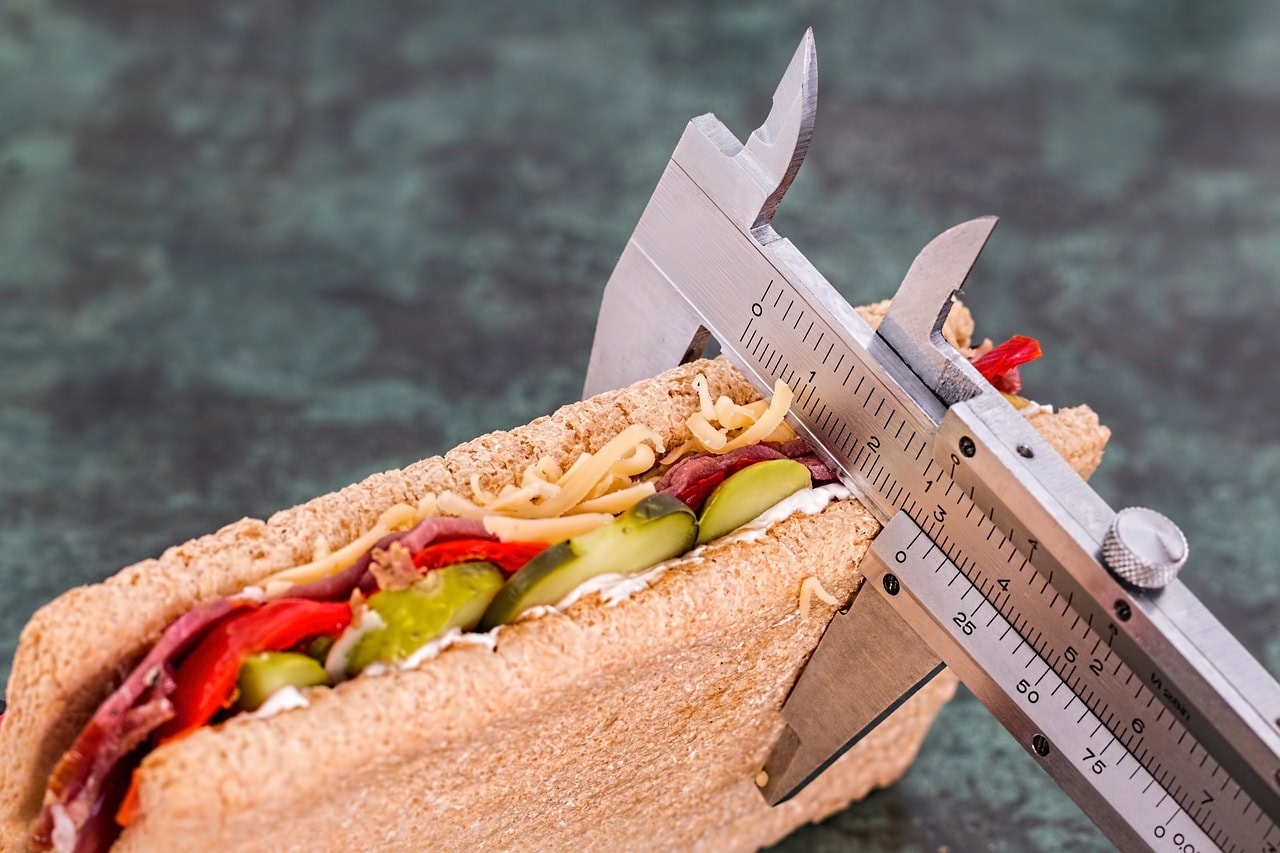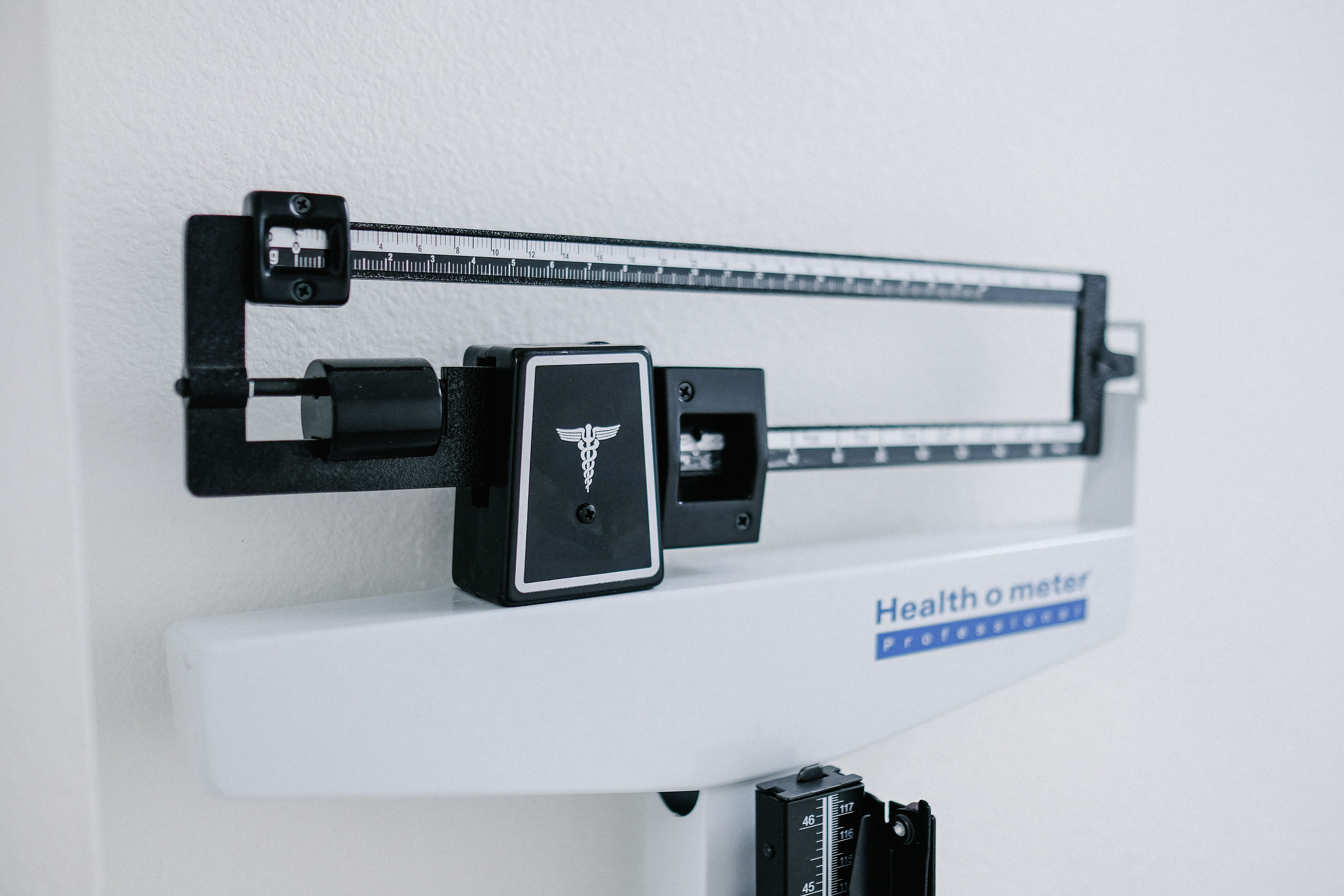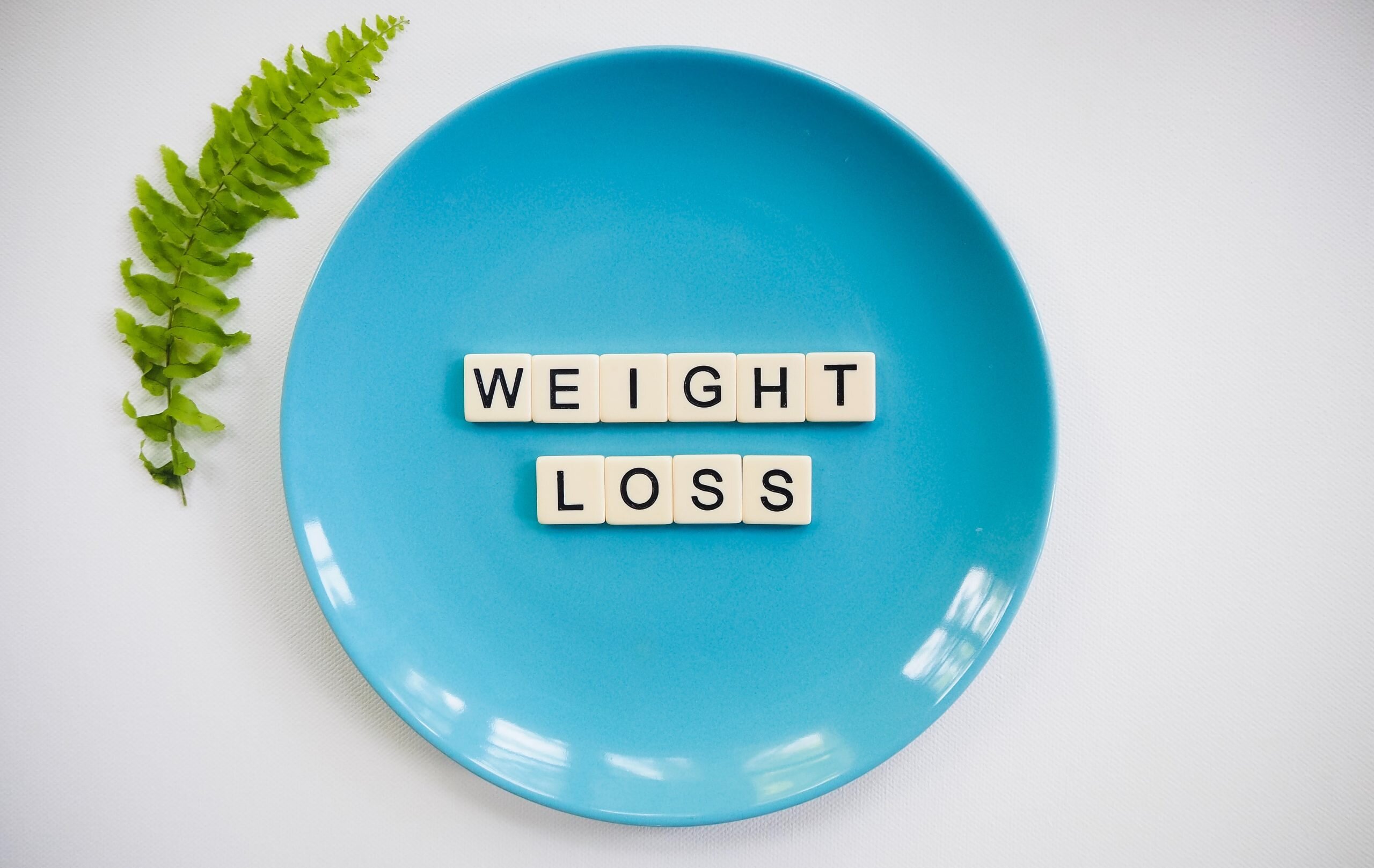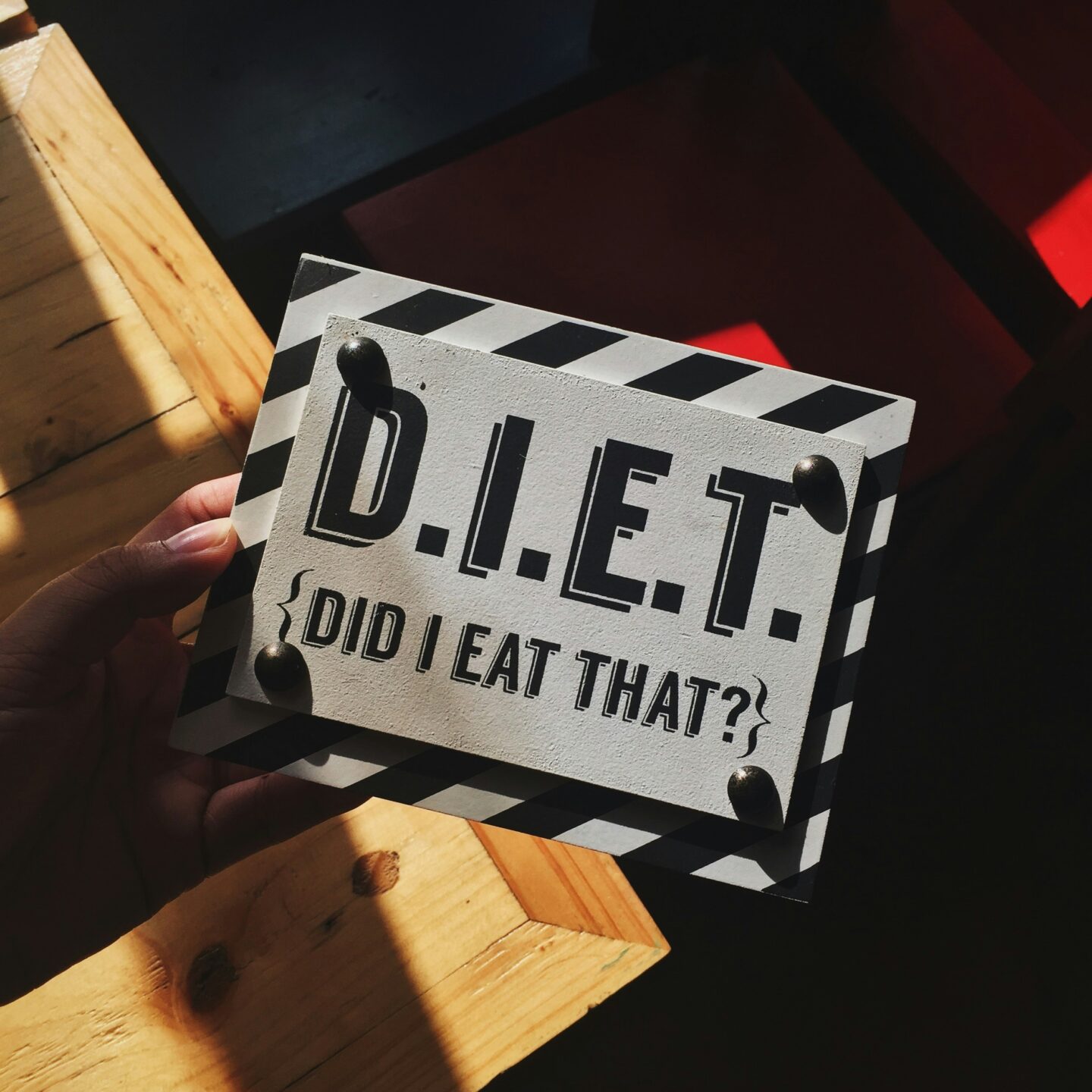
Weight loss is a common goal for many people. Although it may seem like a cliche to say it – the fundamental principle behind losing weight is simple: consume fewer calories than your body needs, and you will lose weight. However, the reality is often more complex, leading many to wonder, “Why am I not losing weight in a calorie deficit?”
I’ve had much success with a calorie deficit diet, but many people – myself included have found that, on occasion, the scales haven’t reflected the week. Some people can be in a deficit and not lose weight, but why? This blog post will delve into some of the reasons why you might be struggling with weight loss despite being in a calorie deficit and offer some practical advice to help you achieve your goals.
As always, before undertaking any kind of weight loss or lifestyle change, it is always best to speak to a medical professional who is best suited to give personalised advice on your individual health needs and health issues. This blog post should serve as a guide only, and before adding or altering your current exercise routine, you should check the suitability with a healthcare professional.
Related Post: Mounjaro For Weight Loss – Does It Work & Is It Safe?
Understanding What A Calorie Deficit Is
Before we explore the reasons why you might not be losing weight in a calorie deficit, it’s important to understand what exactly a calorie deficit is. A calorie deficit occurs when you consume fewer calories than your body expends. This deficit forces your body to use stored energy (fat) to meet its energy needs, leading to fat loss over time.
It’s important to note that your body is using energy all of the time to function, breathe, grow and survive. Similar to that of a car using petrol. If you consume more energy than your body needs, excess energy is stored in the body as fat. If you consume less than your body needs, then you will naturally use that stored energy to burn body fat. The amount of energy each individual needs is unique to their individual circumstance. Their height, weight, exercise levels, age, etc. This is why there is no set goal for a calorie deficit; the right deficit for you is unique. You might need more than your friends, or they might need more than you etc. That is why it is important to calculate your own deficit accurately to prevent asking – why am I not losing weight in a calorie deficit?

How to Calculate a Calorie Deficit
Calculating your calorie deficit involves determining your Total Daily Energy Expenditure (TDEE), which is the number of calories your body needs to maintain its current weight. You can use online calculators to estimate your TDEE based on your age, sex, weight, height, and activity level. Make sure these calculators are accurate. I can also calculate this for you for free if you join our Facebook Group Here. Once you have your TDEE, you can create a calorie deficit by consuming fewer calories than this number.
Common Reasons for Not Losing Weight in a Calorie Deficit
Inaccurate Calorie Tracking
One of the most common reasons people struggle with weight loss is inaccurate calorie tracking. This is why keeping a food jounal is essential to make sure that you are logging everything and logging it accurately. Calorie counting apps are good for this, but again, making sure they’re accurate is essential! Even small discrepancies in calorie counting can add up over time, leading to a situation where you think you’re in a deficit, but you’re actually not. Avoid guestimating calories or measuring by eye. You’ll be surprised how off you can be with measurements if you don’t weigh them out correctly.

Ways To Improve Calorie Counting & Protect Your Weight Loss
Always Use a Food Scale: Weighing your food can help you be more accurate with portion sizes and takes the guestimation out of things.
Read Labels Carefully: Make sure you’re accounting for serving sizes when reading nutrition labels. Labels can be difficult to navigate. Sometimes the amount is given for 100g, full pack or a serving size. Check and make sure the figure you are counting is correct.
Track Everything: Don’t forget to include snacks, beverages, and condiments in your calorie count.
Metabolic Adaptation
When you consistently consume fewer calories than your body needs, your metabolism can slow down in response. This process is known as metabolic adaptation. This is your body’s way of conserving energy, and it can make weight loss more difficult.
Ways to Combat Metabolic Adaptation
Include Refeed Days: Occasionally, eating at your maintenance calories rather than in a constant deficit can help keep your metabolism from slowing down.
Strength Training: Building muscle mass can boost your metabolic rate, helping you burn more calories at rest.

Overestimating Calorie Burn
Many people overestimate the number of calories they burn through exercise. Fitness trackers and online calculators can provide estimates, but they are not always accurate. As with your maintence calories being unique the amount of energy you burn during exercise is unique too. Overestimating your calorie burn can lead to overeating and negate your calorie deficit.
Tips to Avoid Overestimating Calorie Burn
Be Conservative with Estimates: Use the lower end of calorie burn estimates to avoid overcompensating.
Focus on Diet: Remember that exercise is only one part of the equation; diet plays a crucial role in weight loss.
Don’t Eat Back Calories Burnt: Your calorie deficit has taken into consideration your exercise level, so taking the calories burned and then consuming them can actually cause you to overeat.
Why Am I Not Losing Weight in a Calorie Deficit? Addressing Psychological Factors
Stress and Sleep
Stress and lack of sleep can significantly impact your ability to lose weight. High levels of stress can lead to emotional eating and poor food choices, while lack of sleep can disrupt your hormones and increase cravings for high-calorie foods. High stress levels can increase cortisol levels, a stress hormone, which can promote fat storage.

Strategies to Manage Stress and Improve Sleep
Practice Relaxation Techniques: Activities like yoga, meditation, and deep breathing can help reduce stress levels.
Establish a Sleep Routine: Aim for 7-9 hours of sleep per night and create a consistent bedtime routine to avoid sleep deprivation.
Hormonal Imbalances
Hormonal imbalances, such as those related to thyroid function, can affect your metabolism and make it harder to lose weight. Conditions like hypothyroidism can slow down your metabolism, making weight loss challenging even with a calorie deficit.
Steps to Address Hormonal Imbalances
Consult a Healthcare Professional: If you suspect a hormonal issue, speak with your doctor for appropriate testing and treatment of any health conditions. The only way to know for sure if this is the case for you is with testing. It’s always best to rule this out if you are in doubt so speak to a doctor first.
Monitor Symptoms: Keep track of any symptoms related to hormonal imbalances, such as fatigue, weight gain, and mood changes.

The Importance of Patience and Consistency
Unrealistic Expectations
Weight loss is a gradual process, and expecting rapid results can lead to disappointment and frustration. It’s important to have realistic expectations and understand that sustainable weight loss takes time. We all want quick fixes and results yesterday, but it is important to make sure that we are setting achievable goals.
Tips for Setting Realistic Goals
Aim for a Slow and Steady Rate: Aiming to lose 0.5 to 1 pound per week is a healthy and sustainable goal. Would you like to lose weight fast? Yes! Of course, you would, but health and sustainability are the biggest factors that will contribute to your overall success.
Celebrate Non-Scale Victories: Focus on improvements in fitness, energy levels, and overall health, not just the number on the scale.

Consistency Over Perfection
Consistency is key when it comes to weight loss. Occasional deviations from your plan are normal, but what matters most is your overall consistency. I often say to people that if you are going out and you want to enjoy yourself and not count your calories, then as a one-off – it’s okay to live a little. This journey is about balance. However, it is important to not let one evening become your new lifestyle, and returning back to your consistent effort is what will bring you the best results.
Ways to Maintain Consistency
- Create a Sustainable Plan: Choose a diet and exercise routine that you can stick with in the long term.
- Stay Accountable: Find a support system, whether it’s friends, family, or our Facebook group, to help you stay on track.
Why Am I Not Losing Weight in a Calorie Deficit? Exploring Advanced Strategies
Plateaus and Adjustments
Hitting a weight loss plateau is a common experience, although it isn’t spoken about enough. Your body may adjust to your current calorie intake and activity level, requiring you to make further adjustments to continue losing weight.
Strategies to Overcome Plateaus
Adjust Your Calorie Intake: If you’ve been on the same calorie intake for a while, you might need to reduce it further to continue losing weight. Recalculating your measuremnts and TDEE is important to make sure you are on track.
Increase Physical Activity: Incorporate more physical activity into your routine, such as adding extra cardio or strength training sessions.

Review Your Macros
The composition of your diet can also affect your weight loss progress. The balance of macronutrients (carbohydrates, proteins, and fats) plays a role in your body’s ability to lose weight. I only recently learnt this, and as a result, I now prioritise protein and encourage others to do the same. In the past, I thought protein was for bodybuilding, not weight loss, but when I hit my protein goals, I found I lost the most weight!
Tips for Macros
Prioritise Lean Protein: High-protein diets can help preserve muscle mass and promote satiety.
Healthy Fats and Carbs: Include healthy fats and complex carbohydrates to support overall health and energy levels.

Seek Professional Guidance
Sometimes, despite your best efforts, you may need additional support to achieve your weight loss goals. Consulting with a registered dietitian, nutritionist, or personal trainer can provide personalised advice and strategies. It’s always best to check that everything is okay healthwise and thse are the best people to support with that.
Benefits of Professional Guidance
Customised Plans: Receive a plan tailored to your specific needs and goals.
Accountability and Support: Professional guidance can help you stay motivated and accountable.

Calorie Deficit But Not Losing Weight Conclusion
In conclusion, if you’re wondering, “Why am I not losing weight in a calorie deficit?” there are many factors to consider. From “inaccurate calorie tracking and metabolic adaptation to psychological factors and hormonal imbalances, several issues could be hindering your progress. By understanding these potential obstacles and implementing strategies to combat them, you can increase your chances of success and achieve your weight loss goals.
Remember, patience and consistency are essential. Weight loss is a journey that requires time, effort, and dedication. Stay focused, make adjustments as needed, and celebrate your progress along the way. With the right approach, you can overcome the challenges and achieve the healthy, sustainable weight loss you desire.

FAQs
Why am I not losing weight in a calorie deficit even though I’m eating healthy?
Eating healthy foods is important, but portion sizes and overall calorie intake still matter. Make sure you’re accurately tracking your food intake, and you’re not overconsuming even healthy foods.
Can stress affect weight loss?
Yes, high levels of stress can lead to emotional eating and poor food choices, which can hinder weight loss. Managing stress through relaxation techniques can help. Poor sleep is also a contributing factor that should be considered not just for weight loss but overall mental health.
How often should I adjust my calorie intake if I’m not losing weight?
If you’ve hit a weight loss plateau and haven’t lost weight for a few weeks, it might be time to adjust your calorie intake or increase your physical activity. Consulting a professional can also provide personalised guidance.
Do I need to count macros to lose weight?
While counting macros isn’t necessary for everyone, it can be beneficial to ensure you’re getting the right balance of nutrients. Prioritising lean protein and including healthy fats and carbs can support weight loss long term.
Can hormonal imbalances prevent weight loss?
Yes, hormonal imbalances such as thyroid issues can affect your metabolism and make it harder to lose weight. If you suspect a hormonal issue, consult a healthcare professional for appropriate testing and treatment.

Is it normal to have weight loss plateaus?
Yes, weight loss plateaus are common and can occur as your body adjusts to your calorie intake and activity level. Making adjustments to your diet and exercise routine can help you overcome plateaus.
Should I seek professional help if I’m not losing weight?
If you’ve tried multiple strategies and still haven’t seen results, seeking professional guidance from a registered dietitian, nutritionist, or personal trainer can provide personalised advice and support, especially if you have any underlying medical conditions.
By addressing these frequently asked questions and understanding the complexities of weight loss, you can better navigate your weight loss journey and overcome the challenges you may face. Remember, the key to success is persistence, patience, and a willingness to make adjustments as needed.
Weight loss is not just about cutting calories; it involves understanding your body’s unique needs, managing stress, and a balanced diet and regular exercise routine. With dedication and the right strategies, you can achieve your weight loss goals and maintain a healthy weight for the long term.
If you want further support and company on your weight loss journey, join my free Facebook Group here. Oh, and if you have found this website and articles useful and you’d like to know how you can say thank you, then I am always appreciative of receiving a virtual coffee here.
Thank you for stopping by! Check out my last post here.
Love as always!

 More From Me
More From Me
Want to find out more about me? Head over to this page. If you like reading posts like this, then you might want to follow me over on Bloglovin. Don’t forget you can find me on Instagram, Facebook, Twitter & YouTube. As always, my words, views and opinions are honest and my own. Links marked with “*” are affiliate links. This does not cost you anything additional, but it may mean I earn a small percentage from any sales. For more information about any of these, please head over to this page.

